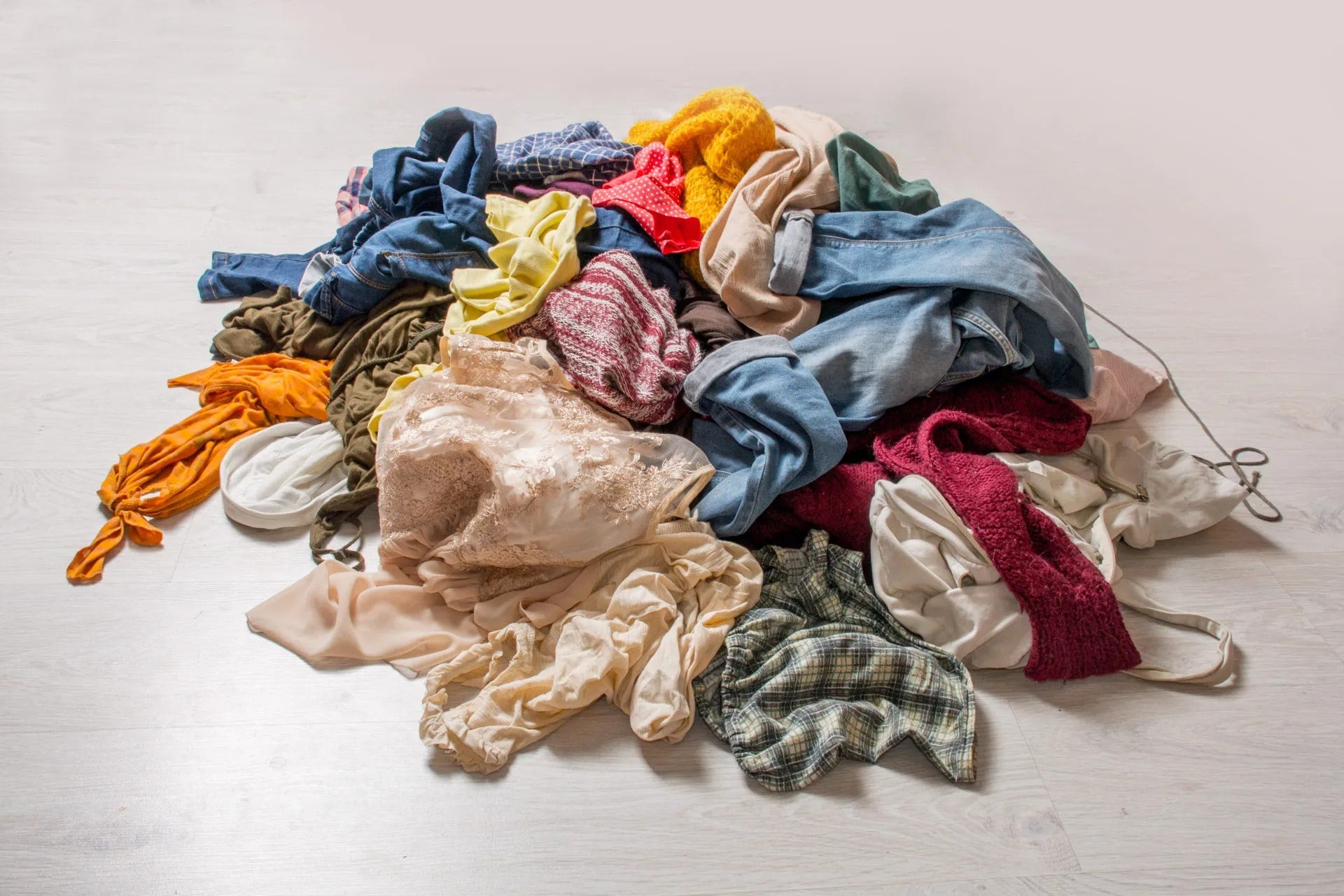Without doubt, fashion is one of the fastest moving sectors when it comes to sustainability. Here are five of the best bits of news from August. It’s the first in a series of monthly roundups of the finest sustainability news about fashion.
Garment waste from Nike, Clarks, and other leading brands burned to fuel toxic kilns in Cambodia
Four years ago, there was major uproar over the revelation that the British fashion retailer, Burberry, burned clothes to maintain scarcity of its product. Burberry reacted to the furore by committing to end the practice. It is therefore upsetting to hear of a Greenpeace investigation exposing more burning of garments from brands such as Nike, Ralph Lauren, Michael Kors, Reebok, Next Diesel, and Clarks.
This time, the burning of garment off-cuts in Cambodia is being used to fuel kilns used in the manufacture of bricks. These kilns need to maintain significant heat (sometimes up to 650℃) which is fueled by the burning of garment waste and wood. Due to the toxic chemicals in these garments, the smoke from the incineration of the garment waste can have negative health effects - from coughs through to lung inflammation, not to mention the extended carbon footprint of these clothes.

The brands said that they expected their partners and suppliers to comply with strict codes of practice that did not allow for these practices to take place and that the claims would therefore be investigated.
Exceptional alt-leather hats, from mushrooms
There are all sorts of eco-friendly alternatives to leather these days: Pinatex from pineapples, Desserto from cacti, and Malai from coconuts, to name but a few. And more are emerging all the time.
One of the more promising surfaced in August, however, and it’s made from mushrooms. More specifically, from mycelium, which is the root system of mushrooms.
The fabric, named Reishi TM, was created by Mycoworks in a collaboration with luxury hatmaker Nick Fouquet. The leather created is the first time mycelium has been harnessed to create a mushroom leather that’s completely free from plastic - and the look, feel and performance is almost indistinguishable from the real thing. The closeness is such that it suggests the future of plant-based leather will be incumbent on mushrooms.

The only issue is the price of those hats. Over $800 is a lot of coin. We feel sustainable fashion should be affordable for everyone to make the most impact. Still, we suppose a trend needs to start somewhere before it takes off more widely and becomes accessible.
Stella McCartney and Collaborative Fund launch 200m dollar sustainable investment
With the ESG (Environmental, Social, and Governance) investment grouping taking a beating from various angles, it is noteworthy when an individual with longstanding lifestyle credentials that align with the ESG movement gets involved in investing. Stella McCartney, a lifelong vegetarian, who uses no leather or fur in her fashion designs is partnering with Collaborative Fund to invest and support founders building a more sustainable future.
Called the SOS fund, an initial $200 million will be invested in climate solutions and founders for better business. McCartney has said that investments have already been made into companies such as Mylo leather and Bolt Threads.
The Days of Free Returns May Be Over
Around 30% of online orders from fast fashion brands are returned - and behind the scenes this leads to waste. When an item is returned, it isn’t just put back where it was before. Rather, brands claim they don’t have the time or money to check, clean, repackage, and go through the due processes to prepare returned clothing to be desirable for repurchase. This means the majority of returns end up in landfill.
Offering free returns makes people 78% more likely to purchase from a brand, so it’s not surprising that they’re so ubiquitous. But now, many fast fashion brands are starting to charge for returns. The motive for this change may be to cut costs but at least this trend will have a positive sustainable impact. Less unnecessary clothing ending up in landfill and folk being more mindful of their purchases.
Note that POMP also offers free returns but none of our returns end up in landfill!
Polyester Eating Enzymes
At the moment, less than 1% of clothing is actually recycled to create new clothing. In part because it’s a technically complex process. In a recent blog post we talked about some of the difficulties with recycling blended and synthetic fabrics, and how pioneering companies are figuring out how to recycle more efficiently while producing high quality fabric.
Carbios is one of these companies - this French biotech startup has identified an enzyme, originally found in compost, that enjoys decomposing the world’s most popular fabric: polyester. The enzyme is able to break down the polyester found in textile waste (polyester makes up two thirds of our clothing, by the way), making it ready to be used again and as good as virgin fabric.

They’re partnering with some big clothing brands such as Patagonia, to take the technology forward. So hopefully the fundamentals can be put to practical use within the fashion industry soon. After all, polyester is used to create a lot of stuff and recycled polyester is far less harmful than new.
That’s it for this month - we’ll see you in September.




